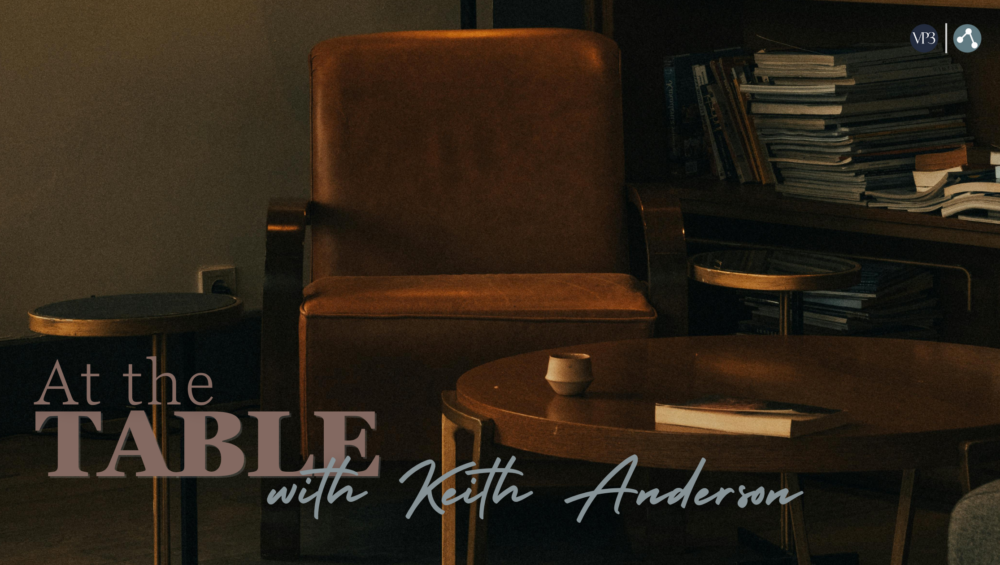A Pastoral Reflection on Violence in Our Society
By Keith Anderson
Every time another shooting erupts—in schools, in sanctuaries, on neighborhood streets—we ask the same anguished question: “Is this the new normal?”
It happened again. Families are grieving loved ones whose lives were cut short. Children are left shaken, carrying fears that no child should carry. Parents drop their kids off at school, wondering if they will be safe, and too many of us have begun rehearsing worst-case scenarios when we enter public spaces. Some buy weapons. Others send children with bulletproof backpacks. Schools practice lockdown drills. Many quietly avoid large gatherings. We are learning to live with fear, to anticipate trauma, to prepare for violence.
A bishop friend of mine told me of two separate Sundays when she and her family were caught in moments of possible violence. “I found myself sitting in the pews on Sunday morning, thinking about exits and how to shield their four bodies with my one,” she wrote. Another time: “We locked the doors, stayed out of sight, and waited for help to come.”
This is not how worship should feel.
During my tenure as president at The Seattle School of Theology & Psychology, I wrote letter after letter after shootings and mass killings. One week, violence erupted just blocks from where my wife and I once attended college in St. Paul. I told our community then what I still believe now:
“We all lost something precious in the last week of our common lives in this country. We lost some part of our common humanity. We lost our ability to trust each other. We lost our ability to see the other as one created in the image of the living God. We lost community with some who are different than we are. Every time there is violence against people, we lose something precious.”
Living honestly with grief
I confess my response to such senseless violence is not consistent. Sometimes I weep. Sometimes I rage. Sometimes I try to analyze or theologize. Always I grieve.
There are moments when my own heart feels anything but gracious. I mutter, “This again? Again?” Compassion can feel distant when the losses are so heavy. But the psalms give us a way to pray when words run dry: “How long, O Lord? Will you forget me (us) forever?” (Psalm 13:1).
A Biblical Imagination for Response
The Bible is no stranger to violence, but neither is it silent in the face of it. It offers us lament as our starting point, but not our ending place. From lament, we are called toward faith, action, and hope. I have no formula to offer but images of a biblical imagination in response to the death of more children away at school, in fact, in prayer on that school day morning.
- Refuse to normalize violence. Scripture insists that violence is not inevitable. Isaiah envisions a day when nations “shall beat their swords into plowshares” (Isaiah 2:4). Naming violence as abnormal is itself an act of hope.
- Practice daily mercy. Violence thrives on cycles of hatred, but mercy disrupts the chain. Forgiveness, kindness, and bridge-building are not small gestures; they are seeds of resurrection.
- Pray and act together. Archbishop Rowan Williams once wrote: “To pray is to stand in the place where the cries of the world and the promises of God intersect.” Our prayers must give strength to our hands and feet. Some will call for the abolition of guns. Many will respond in outrage at threats to their personal liberty. To both, I say, let our prayers lead us to constructive actions in the face of yet another gun-related tragedy.
- Do justice, love mercy, walk humbly. Micah 6:8 is not a slogan but a survival strategy. As the rabbis remind us: “You are not obligated to complete the work, but neither are you free to abandon it.” We cannot erase the world’s grief, but we can faithfully persist in the work of healing and justice.
- Ground yourself in the gospel story. Scripture does not deny violence—Bethlehem’s children were slaughtered, prophets silenced, Jesus crucified. Yet the gospel declares that violence does not have the final word. Resurrection does. Barbara Brown Taylor reminds us: “The church is not a stopping place but a starting place for discerning God’s presence in the world.” Worship should not shield us from the world’s pain; it must prepare us to meet it with courage.
A Word of Comfort for Families
To families who grieve, to parents who send children to school with trembling hearts, to congregations who worship behind locked doors: your tears matter to God. The psalmist assures us that God “collects our tears in a bottle” (Psalm 56:8). Christ himself wept at the tomb of his friend Lazarus. (John 11:35). God does not turn away from our sorrow—God enters it with us.
We need not pretend to be unshaken. We need not be silent. Our lament is holy. Our longing for peace is faithful. And our small acts of justice and mercy are not wasted, for they join God’s great story of redemption.
Not the New Normal
No, this cannot be the new normal. To normalize violence is to surrender. As followers of Christ, we are called to protest with prayers of lament, to resist with love, and to live as witnesses that another way is possible.
“Blessed are the peacemakers, for they will be called children of God” (Matthew 5:9).
That is not naïve. It is the deepest, hardest, holiest form of hope.
Practice: Perhaps this week’s violence might be your invitation to offer your thoughts, comments, and certainly your prayers for the families of victims and for the loss of precious children. Use the comment section below to offer your thoughts.
_______________________________

Keith Anderson, D.Min., is a Faculty Associate for Spirituality and Vocation at VantagePoint3 and President Emeritus of Seattle School of Theology and Psychology. He is the author of several books, including his most recent: On Holy Ground: Your Story of Identity, Belonging and Sacred Purpose (Wipf & Stock, 2024). His other works include Reading Your Life’s Story (IVP, 2016), A Spirituality of Listening (IVP, 2016), and Spiritual Mentoring (IVP, 1999). In his writing, teaching, and mentoring, Keith seeks to set a table for people looking to enter the “amazing inner sanctuary of the soul” in the most ordinary and extraordinary moments of life.


1 Comment
Over the past couple of weeks, I’ve been mulling over a phrase from 2nd Peter 3:11. In part, Peter writes, “…what sort of persons ought you to be in leading lives of holiness and godliness…”? It’s a penetrating question on any day, but takes on a societal objection when violence occurs in our communities. While I may not be one who shoots up a school, it doesn’t remove me from my own responsibilities to advocate for changes in our world that doesn’t always protect those who cannot always protect themselves. We are better than this. We have to be better than this.